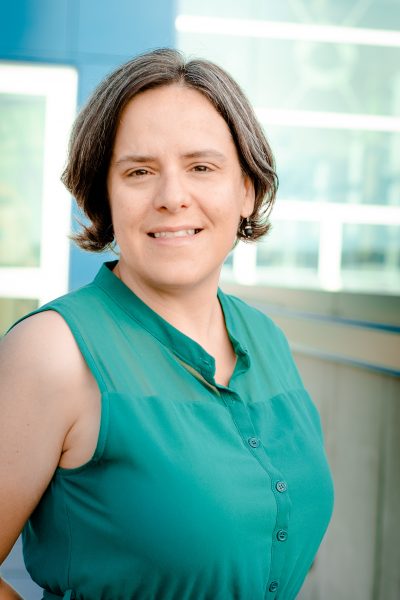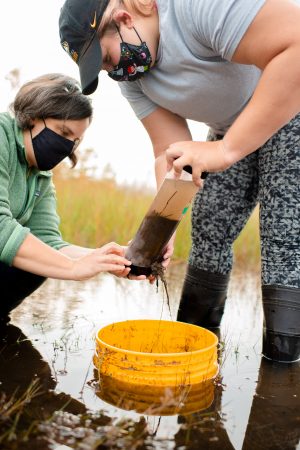Amy Marcarelli is a professor of biological sciences and an ecosystem ecologist with an interest in energy and biogeochemical cycles in freshwater bodies. She received her bachelor’s in biology from Colgate University and her Ph.D. in ecology from Utah State. She is the director of both the Ecosystem Science Center and the Aquatic Analysis (AQUA) shared facility at Michigan Tech. Her research applies across aquatic habitats, including streams, rivers, wetlands, lake littoral zones — the sloping area where sunlight reaches from the lake’s surface all the way to the sediment, located between the shore and deeper water — and the nearshore regions of the Great Lakes.
“Amy Marcarelli is a true example of the teacher-scholar model. She maintains an active research program studying ecology of aquatic ecosystems and has administrative duties as the director of our Ecosystem Science Center on campus. Yet she also devotes vast time and talent to doing an outstanding job in the classroom, introducing our students to the remarkable ecology of Lake Superior, involving them by the dozens in research in her laboratory, and preparing students for graduate school and careers. Michigan Tech is fortunate to have Dr. Marcarelli on our faculty.”

